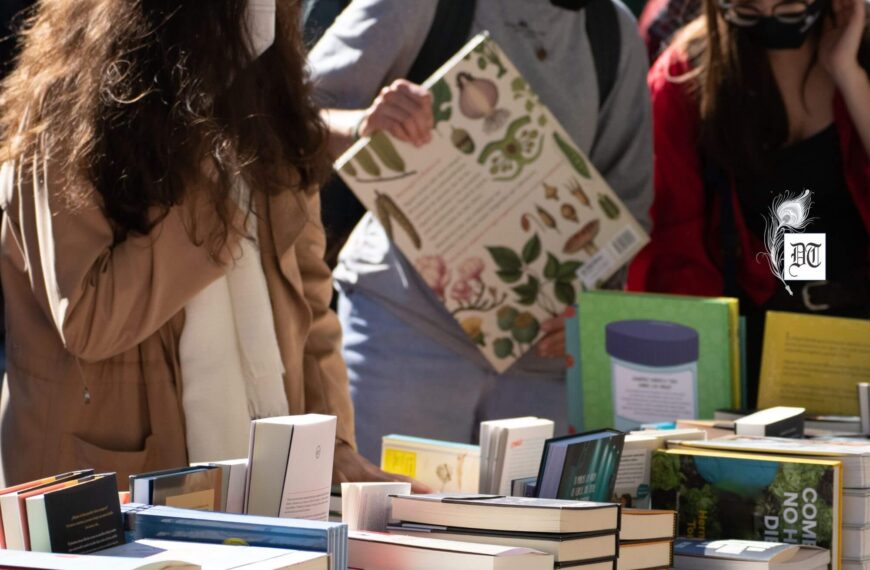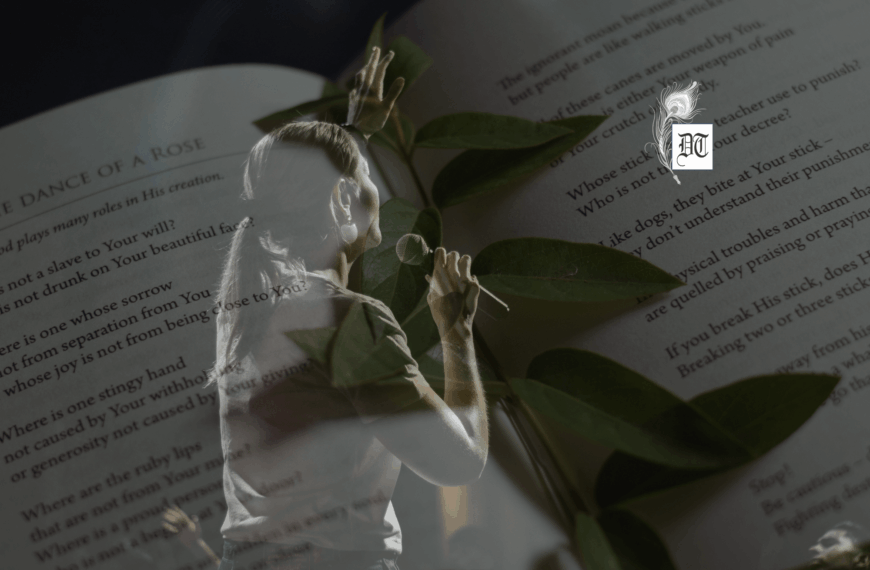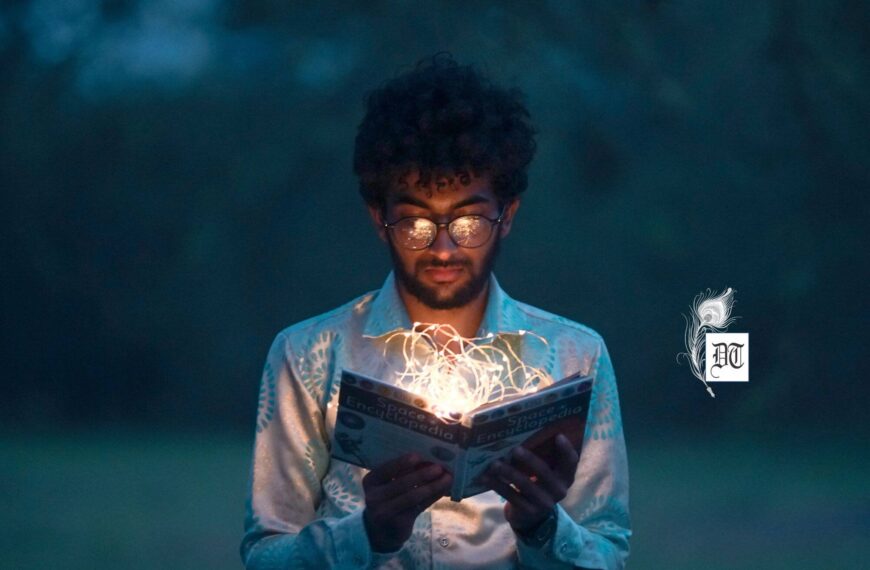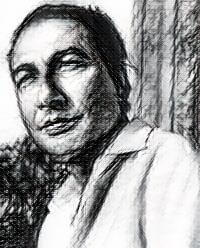The novel, The Other End of the Corridor, by Sujata Rajpal, has a free flowing story line, with plots and sub-plots blending seamlessly. Changes happen, relationships changes, relationships crashes but these all happen slowly and not in a day. Leela, the protagonist, has a secret. Her virtual life provides her with hope and a sense of adventure. It gives her satisfaction and happiness, which are non-existent in her real life. The novel also touched on a very sensitive issue of rape by a close relative, where the victim herself is seen as the perpetrator of the crime. But, Leela is a strong woman, independent-minded and determined but all in a subtle way. She realises her strength only in adversity and decides to take reins of her own life. This proves to be turning point in her life and she starts hating her husband more than the rapist because she had expected tender and sensitive behaviour from him. But she was shattered by his attitude. That is why she avoids depending on anybody other than on her own self. Mahua interviews Sujata, exclusively for Different Truths.
It was a perfect afternoon for a conversation with an author. It had rained all afternoon bringing down the mercury but the sun had risen again with the moist breeze. Sujata Rajpal, the author, was in Bakul, for the launch of her first novel, The Other End of the Corridor. We did not miss a chance to have this interview, or a rather free-flowing ‘khatti’ with her with cups of steaming tea.
![]() Mahua: Welcome to Bakul. How do you like the place and the ambience?
Mahua: Welcome to Bakul. How do you like the place and the ambience?
![]() Sujata: Thank you. Oh! I love this space, the ambience and the designs…everything. The library is giving out strong positive vibes.
Sujata: Thank you. Oh! I love this space, the ambience and the designs…everything. The library is giving out strong positive vibes.
![]() Mahua: Is this your first visit to Bhubaneswar/Odisha? How is your experience and what you do like/dislike about the place?
Mahua: Is this your first visit to Bhubaneswar/Odisha? How is your experience and what you do like/dislike about the place?
![]() Sujata: Yes this is my first visit to the state. I am moved by the spontaneous hospitality of the people of Odisha. They are so warm and welcoming that I simply love it here. You see my motto is wherever one is one should like the place. There is no ‘perfect place’. We like or dislike a place because of its people. We make connections with people and here I find such warmth that I like it here.
Sujata: Yes this is my first visit to the state. I am moved by the spontaneous hospitality of the people of Odisha. They are so warm and welcoming that I simply love it here. You see my motto is wherever one is one should like the place. There is no ‘perfect place’. We like or dislike a place because of its people. We make connections with people and here I find such warmth that I like it here.
![]() Mahua: Since one our main target is to promote reading, as an author what do you think we should do?
Mahua: Since one our main target is to promote reading, as an author what do you think we should do?
![]() Sujata: As an author, as a teacher and as a mother I feel that the teachers in the schools and the mothers
Sujata: As an author, as a teacher and as a mother I feel that the teachers in the schools and the mothers have extremely important roles to play in inculcating reading habits among children. There are too many distractions now. The mothers, I am afraid to say, take the easier way out and instead of engaging or encouraging the children into reading activities like, reading aloud to the younger children and helping the older children to read they switch on the television or give them some computer/tab games to play. The child will do what s/he sees and not what s/he is told. Similarly, the teachers in a school are under pressure to finish the curriculum and thus they hardly pay any attention to make the children read books outside the syllabus. They forget that it is only through reading story books children will develop vocabulary, imagination and knowledge. The reading habit has to be instilled as a child otherwise, s/he will find it very difficult to start it late in life.
have extremely important roles to play in inculcating reading habits among children. There are too many distractions now. The mothers, I am afraid to say, take the easier way out and instead of engaging or encouraging the children into reading activities like, reading aloud to the younger children and helping the older children to read they switch on the television or give them some computer/tab games to play. The child will do what s/he sees and not what s/he is told. Similarly, the teachers in a school are under pressure to finish the curriculum and thus they hardly pay any attention to make the children read books outside the syllabus. They forget that it is only through reading story books children will develop vocabulary, imagination and knowledge. The reading habit has to be instilled as a child otherwise, s/he will find it very difficult to start it late in life.
![]() Mahua: Don’t you think that the electronic medium is a threat to books and people are not getting to read?
Mahua: Don’t you think that the electronic medium is a threat to books and people are not getting to read?
![]() Sujata: Yes of course. Watching TV or spending time in front of the computer is an easy thing to do. One doesn’t have to think and one can just sink in a virtual world of fast moving happenings in front of one’s eyes.
Sujata: Yes of course. Watching TV or spending time in front of the computer is an easy thing to do. One doesn’t have to think and one can just sink in a virtual world of fast moving happenings in front of one’s eyes.
![]() Mahua: You were in corporate communication, you were into teaching and now you are into writing full time. Since this is your first novel how would you say your transitional experience has been? How is writing novel different from writing non-fictions, corporate write-ups, articles or even short stories?
Mahua: You were in corporate communication, you were into teaching and now you are into writing full time. Since this is your first novel how would you say your transitional experience has been? How is writing novel different from writing non-fictions, corporate write-ups, articles or even short stories?
![]() Sujata: Writing fiction is so different from writing other things because you need to be imaginative but your imagination must be the real. So you imagine reality. Non-fiction is what you see. Like now I am sitting in the library and I see the books kept in a particular manner or the shelves are like what they are and I can write about these things in a straight way in an article on Bakul or a library but it is not so in a fiction. There you have to imagine the reality through the mind of the characters. Look for their gender perspective and their separate characteristic traits. For example a woman character of a fiction is more likely to observe the colour of the table cloth in a room rather than a male character. You have to delve deep into the heads of the characters, be them and think like them. I took about five years to complete this novel and for these five years I have been leading my own life as Sujata and the lives of my characters.
Sujata: Writing fiction is so different from writing other things because you need to be imaginative but your imagination must be the real. So you imagine reality. Non-fiction is what you see. Like now I am sitting in the library and I see the books kept in a particular manner or the shelves are like what they are and I can write about these things in a straight way in an article on Bakul or a library but it is not so in a fiction. There you have to imagine the reality through the mind of the characters. Look for their gender perspective and their separate characteristic traits. For example a woman character of a fiction is more likely to observe the colour of the table cloth in a room rather than a male character. You have to delve deep into the heads of the characters, be them and think like them. I took about five years to complete this novel and for these five years I have been leading my own life as Sujata and the lives of my characters.
![]() Mahua: Most of us have lots to say and cherish the secret desire of telling our stories one day. How should we go about it?
Mahua: Most of us have lots to say and cherish the secret desire of telling our stories one day. How should we go about it?
![]() Sujata: I would say, just start writing. Don’t worry about anything. Just write. Make drafts, show it to people. Take their feedbacks and criticisms positively. Polish your drafts, take honest feedbacks ask them to brutally ccriticise you. There are no short cuts.
Sujata: I would say, just start writing. Don’t worry about anything. Just write. Make drafts, show it to people. Take their feedbacks and criticisms positively. Polish your drafts, take honest feedbacks ask them to brutally ccriticise you. There are no short cuts.
![]() Mahua: In your acknowledgement you have given credit to your editors. Please describe their roles and tell us what exactly did they do? I am asking this because this is an area the general readers and also the aspirant authors are not too aware of.
Mahua: In your acknowledgement you have given credit to your editors. Please describe their roles and tell us what exactly did they do? I am asking this because this is an area the general readers and also the aspirant authors are not too aware of.
![]() Sujata: The role of the editors is of extreme importance. I feel that one should never take one’s unedited manuscript to any publisher. In my case, I had hired three editors successively. Unlike your friends and well-wishers, whom you are likely to show your unpolished draft, the editors will look at your work dispassionately and identify the gaps and other weaknesses. At the end of the day it is not the plot which is as important as the presentation. A novel should be presented in a novel manner.
Sujata: The role of the editors is of extreme importance. I feel that one should never take one’s unedited manuscript to any publisher. In my case, I had hired three editors successively. Unlike your friends and well-wishers, whom you are likely to show your unpolished draft, the editors will look at your work dispassionately and identify the gaps and other weaknesses. At the end of the day it is not the plot which is as important as the presentation. A novel should be presented in a novel manner.
![]() Mahua: Now we come to your novel. The name is interesting ‘The Other End of the Corridor’. How did you ‘name’ it?
Mahua: Now we come to your novel. The name is interesting ‘The Other End of the Corridor’. How did you ‘name’ it?
![]() Sujata: Somehow the name stuck to my head and I had fallen in love with it.
Sujata: Somehow the name stuck to my head and I had fallen in love with it.
![]() Mahua: The novel has a very free flowing story line yet there are many plots and sub-plots blending into one another.
Mahua: The novel has a very free flowing story line yet there are many plots and sub-plots blending into one another.
![]() Sujata: Yes, life is like that only. There are twists and turns but those all blend in subtly. Changes happen, relationships changes, relationships crashes but these all happen slowly and not in a day. Nothing happens without a reason. For example, if you see a very ill-mannered child you will definitely find out that there are problems in his/her family.
Sujata: Yes, life is like that only. There are twists and turns but those all blend in subtly. Changes happen, relationships changes, relationships crashes but these all happen slowly and not in a day. Nothing happens without a reason. For example, if you see a very ill-mannered child you will definitely find out that there are problems in his/her family.
![]() Mahua: Leela has a secret as we all perhaps do and that is why most of us will be able to relate to her. Do you feel her virtual life has impacted her real life?
Mahua: Leela has a secret as we all perhaps do and that is why most of us will be able to relate to her. Do you feel her virtual life has impacted her real life?
![]() Sujata: This virtual life is providing her with hope and a sense of adventure. It is giving her satisfaction and happiness which are non-existent in her real life. She poses to be the one she actually dreams of becoming. And finally, when she realises her strength she makes her dream a reality.
Sujata: This virtual life is providing her with hope and a sense of adventure. It is giving her satisfaction and happiness which are non-existent in her real life. She poses to be the one she actually dreams of becoming. And finally, when she realises her strength she makes her dream a reality.
![]() Mahua: You have also touched on a very sensitive issue of rape by close relatives and where the victim herself is seen as the perpetrator of the crime. This type of cases mostly go unreported but the trauma faced by the women (in many cases the victims are very young and a lot more vulnerable than Leela) leaves an indelible scar on the woman. Most of us have either seen such cases or are victims. How do you think a woman should handle such cases?
Mahua: You have also touched on a very sensitive issue of rape by close relatives and where the victim herself is seen as the perpetrator of the crime. This type of cases mostly go unreported but the trauma faced by the women (in many cases the victims are very young and a lot more vulnerable than Leela) leaves an indelible scar on the woman. Most of us have either seen such cases or are victims. How do you think a woman should handle such cases?
![]() Sujata: Leela is a strong woman, independent-minded and determined but all in a subtle way. She realises her strength only in adversity and decides to take reins of her own life. This proves to be turning point in her life and she starts hating her husband more than the rapist because she had expected tender and sensitive behaviour from him. But she was shattered by his attitude. That is why she avoids depending on anybody other than on her own self. I think here lies the answer.
Sujata: Leela is a strong woman, independent-minded and determined but all in a subtle way. She realises her strength only in adversity and decides to take reins of her own life. This proves to be turning point in her life and she starts hating her husband more than the rapist because she had expected tender and sensitive behaviour from him. But she was shattered by his attitude. That is why she avoids depending on anybody other than on her own self. I think here lies the answer.
![]() Mahua: Your style of writing is very lucid and direct. Have you deliberately kept your style simple and if so why?
Mahua: Your style of writing is very lucid and direct. Have you deliberately kept your style simple and if so why?
![]() Sujata: This is my style. I write like this. It is much better to evolve one’s own style of writing because then only one can be true to one’s own thoughts.
Sujata: This is my style. I write like this. It is much better to evolve one’s own style of writing because then only one can be true to one’s own thoughts.
![]() Mahua: Do you read a lot and who are your favourite authors?
Mahua: Do you read a lot and who are your favourite authors?
![]() Sujata: Yes I do read a lot and not only good works of fiction but also not so good ones because I as an author should know what I should not do as much as what I should do. There are many authors I really like but special amongst them would be Jhumpa Lahiri and Khaled Hosseini. I read their books not only once but many times – as a general reader, then as an author and finally as a critic.
Sujata: Yes I do read a lot and not only good works of fiction but also not so good ones because I as an author should know what I should not do as much as what I should do. There are many authors I really like but special amongst them would be Jhumpa Lahiri and Khaled Hosseini. I read their books not only once but many times – as a general reader, then as an author and finally as a critic.
![]() Mahua: How has the response to your book been?
Mahua: How has the response to your book been?
![]() Sujata: I would say beyond my expectation. In just four months it is going for a reprint. I must say I have been very fortunate.
Sujata: I would say beyond my expectation. In just four months it is going for a reprint. I must say I have been very fortunate.
![]() Sujata: Yes. I am planning to bring out my next book in a year. And I will come to Bakul for its launching.
Sujata: Yes. I am planning to bring out my next book in a year. And I will come to Bakul for its launching.
![]() Mahua: Thank you Sujata for such an interactive session with us in Bakul. I on behalf of Bakul wish you all the best for your future and hope to see you with your new book in Bhubaneswar very soon.
Mahua: Thank you Sujata for such an interactive session with us in Bakul. I on behalf of Bakul wish you all the best for your future and hope to see you with your new book in Bhubaneswar very soon.
©Mahua Maharana
Photos sourced by the author.



 By
By
 By
By
